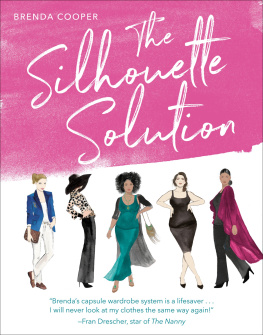Contents
Guide
HOUSE OF PINHEIROS
WORK TO
WEEKEND
WARDROBE
SEW YOUR OWN CAPSULE COLLECTION
RACHEL PINHEIRO
CONTENTS
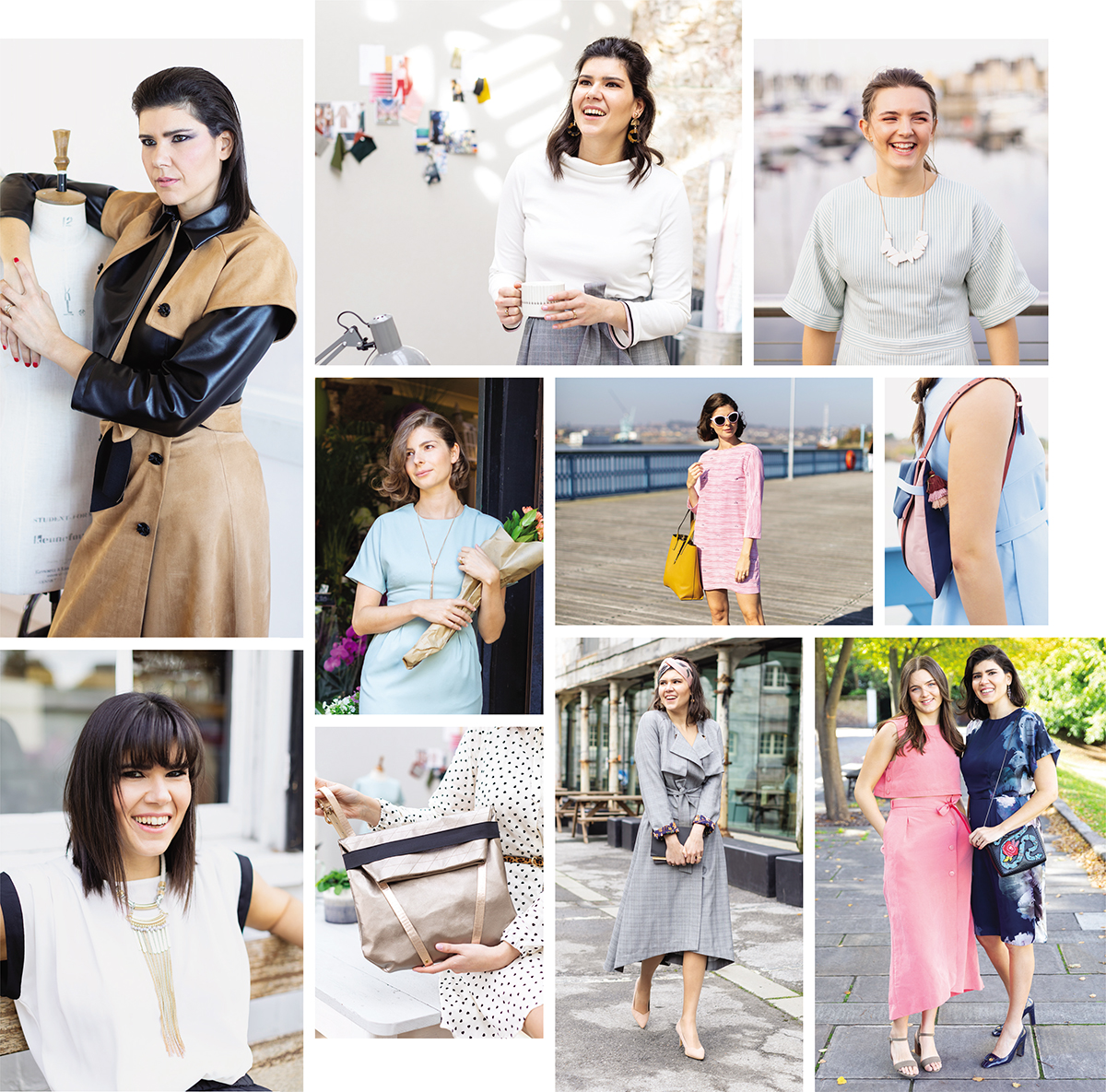
INTRODUCTION
Sewing is the most wonderful skill to encourage personal growth which can be developed at your own pacethere will always be something new to learn. Its a skill that empowers makers to use creativity, problem solving and curiosity.
The main idea behind this book was to create a collection of modern sewing patterns with enough design and construction flexibility to allow you, the maker, to decide how simple or complex your projects are depending on your mood, lifestyle and taste, as well as your energy levels and available time.
I wanted to bring you fun, rewarding and even slightly challenging projects. There are seven full size patterns with instructions for variations but I would like to invite you to go further and experiment with your own creations. I cannot wait to see what you will create!
Inspiration is all around us. I carry a little notebook where I try to draw the key design features that inspire me. Having a visual collage helps with creative flow and clarity when building a conscientious wardrobe. Each one of us will seek inspiration based on our personal taste, personality traits and lifestyle. As life will constantly drive change so our wardrobe must evolve.
This book works on a simple formula which allows workhorse pieces to become big statement pieces simply by the choice of fabric.
I was inspired by items I often wear: clothes that have longevity and a high quality cut, which arent influenced by throw away fashion. Items you can reach for over and over again for a multitude of occasions. Needless to say, the patterns and variations in this book are there to be experimented with so you can create your own definition of style.
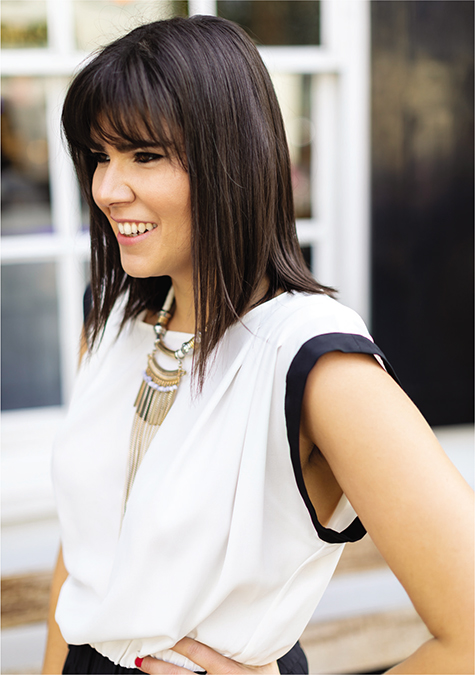
FUNDAMENTALS OF EASY SEWING
- Gather all your supplies beforehand: the correct needles, threads, and all the necessary tools for each project.
- Thoughtful selection of fabric beyond just the surface design.
- Pre wash fabrics to avoid shrinkage.
- Consider directional prints and nap (the pile of the fabric) when cutting out your fabrics.
- Always respect the grainline.
- Sample, sample, sample. If there is one thing that I really want you to remember from this book it is the importance of preparation before you start a project.
- Cut fabric using long, smooth strokes, using the whole length of the blade. On curved areas use short snipping movements.
- Mark all your notches. Notches are there to show you where to match the pattern pieces. To make a notch cut 3mm (18in) into the seam allowance taking care to not do it too deeply.
- When dealing with tricky fabrics that tend to fray or have a loose weave, draw the triangles of the notches outwards and cut them whole. You can trim them when you finish the edge of the seams.
- Label all the pattern pieces using low adhesive tape or washable pen.
- Use new needles and make sure your sewing machine is clean before you start sewing.
- The accuracy of the seams is really important. Use your machine plate or the presser foot to guide you.
- Always start sewing with the needle down, this allows you to anchor the garment before adjusting the fabric and presser foot as you sew.
- Hold both the top and bobbin thread before you start sewing.
- Your hands are for guiding the fabriclet the machine do the hard work. Your hand positions will become natural the more you practice.
- When sewing, the volume of the fabric should be to your left unless you are setting in a waistband in which case it should be to the right of the presser foot.
- Don't forget to backstitch your seams. Sew 10mm (38in) forward and then reverse the same distance and then start sewing forward again.
- If you have sewn over your pins throw them away along with your needle. Its likely that you have damaged them.
- If the fabric is getting caught when you start sewing, try starting 5mm (316in) from the edge of the fabric, reverse back to the edge and continue sewing on top of the previous stitches.
- Don't let fabrics hang off the table when sewing. Fold them into pleats or a manageable bundle.
- When you are sewing, only speed up when you are sewing long straight seams. Use the hand wheel to go over bulky seams and sew slowly around curves.
- When things arent working, go and make a cup of tea. Dont sew when you are feeling frustrated or rushed.
- Keep a few projects on the go that require different levels of attention. Leave the challenging projects for when you are alert and the quick jobs for when you are short of time or tired. This will help to keep mistakes to a minimum and satisfy your sewing cravings.
- Press after every seam.
- Keep a sample book to write down all your successes and disasters, as well as notes about lessons learned, interfacing, stitch settings etc.
- Last but not least: keep your work tidy as you sew.
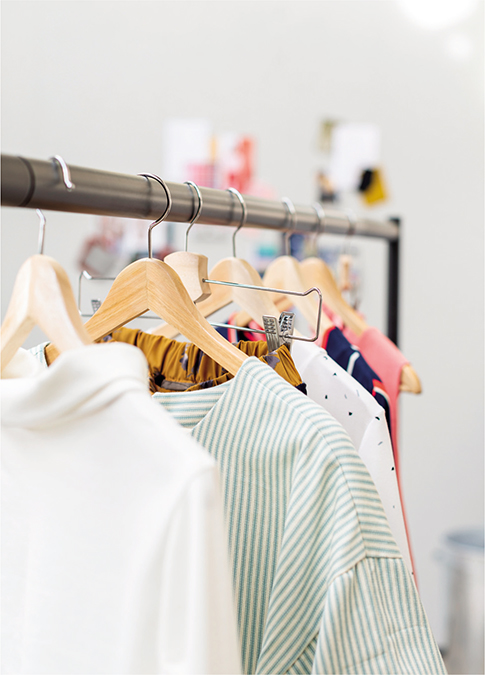
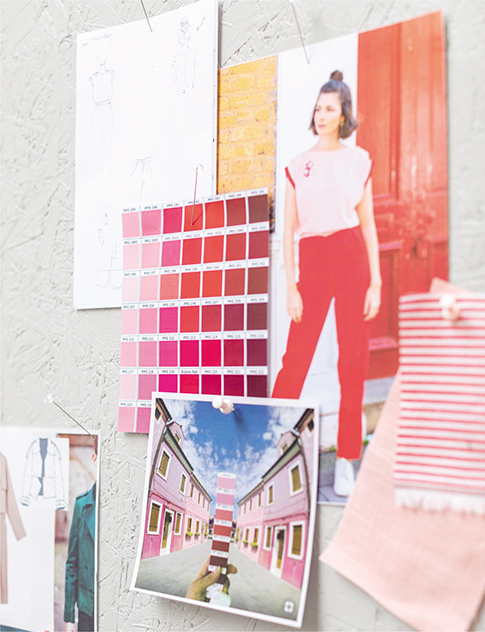
CHAPTER 1: STABLE FOUNDATIONS
NEEDLES AND THREAD
The weight and characteristics of your fabric will determine the size of needle and type of thread to use. Matching all of these components with the best stitch length will make your garment look professional and last for longer.
NEEDLES
The way needles are labelled can be confusing. Each number represents a measurement. The first number is the diameter in millimetres multiplied by 100. The second measurement dates back to the Singer system and represents the same thing.
The easiest way to remember it is that smaller numbers will make smaller holes and therefore are more suitable for delicate fabrics such as chiffon, organza, lace and voile. As the number increases, so does the weight of the corresponding fabric. Medium-weight fabrics like cotton, tweed and linen will need a slightly larger size, and so on for heavy-weight fabrics like denim and wool.
As a guide, I recommend owning a selection of 70/10, 80/12 and 90/14 universal packs. For delicate fabrics I suggest using Microtex needles, as they have a longer, deeper scarf (the groove on one side of the needle).
THREAD
When choosing threads, as well as matching colour, consider the weight, thread count and fibre content. Matching the fibre content with your fabric is really important to maintain the quality and integrity of your garment. For example, if you sew a linen dress using polyester thread, your seams will pucker after washing. This is because the fabric will shrink but the thread wont.
The thicker the thread, the stronger the seam and stitch visibility. To identify thread weight, a quick rule of thumb is that the higher the number, the finer the thread. Thread count relates to the weight in grams and, again, a larger number indicates a larger size. Thread counts are often defined by their Tex or Decitex (dtex) sizes.



